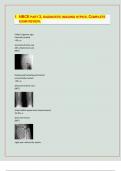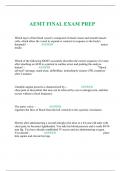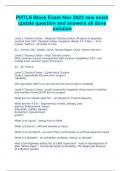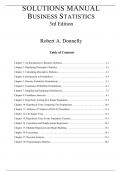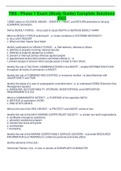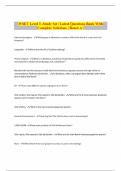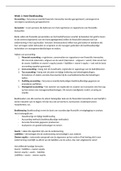Leading questions:
• What should we keep in mind about contemporary cultural conditions?
• What should we know about the state of our discipline?
“[Globalization] refers to the intensification of global interconnectedness, suggesting a world full of
movement and mixture, contacts and linkages, and persistent cultural interaction and exchange.”
(Inda/Rosaldo 2002:2).
Globalization: key concepts (Eriksen):
• Disembedding: disconnection between social and local life / disconnection of cultural
manifestations and actual psychical locations (origin)
• Speed: acceleration of change simultenoutly
• Standardization: things becoming the same
• Connections:
• Mobility: movement of people (migration etc.) as an indication for globalization
• Mixing
• Risk: outside influences like a financial crisis or violent radicalism
• Identity politics
• (Alterglobalization):
The 1980s is an important period for the origins of contemporary globalization, because of the
progress of capitalism (liberalization of global trade) and the end of the cold war. Common ingredients
in definition of globalization:
• Neoliberalism & economic interdependence
• Redefined role nation-state: transnational flows
• Contact & exchange (technological advancement)
• Intertwinement local and global processes
• Cultural pluraformity (confrontation with a variety of cultural influences)
Arjan Appadurai speaks of a new global cultural economy in which we have to study the relation
between culture, politics and economy from the notion of imagined worlds. Appadurai proposes 5
landscapes (building bricks / perspectival construct) of these imagined worlds:
• Ethnoscapes: landscape of groups and persons that move around the world
• Financescape: landscape of the capital market / movement and ability of assets
, • Technoscape: landscape of information and technology
• Mediascape
• Ideoscape
These landscapes lack a clear shape and therefore are fluid. They are not arranged in an orderly
fashion and evolve independently. Through this view the world appears to be highly dynamic, fluid,
and chaotic.
During the modern classical era of anthropology (1900-1945) Malinowski's participant observation
brought an end to armchair anthropology. It also divided the world into seperate groups with distinct
'cultures' > culture is terrorialized (cultural relativism), which was an essentialist perspective:
- Culture is a thing, essence is reified
- Culture is static
- Culture homogeneous
- Cultures are clearly bounded units with a stable territory
- Culture explains behavior
Essentialist notions suited the creation of national identity. Nation building was facilitated by a certain
idea of a people / a nation, which stemmed from the German tradition of Romanticism. Especially the
work of Johann Gottfried von Herder, who spoke of das Volk and believed that people, in a primordial
way, are tied to a nation or ethnic group, one with a distinct culture and a territorial claim. He thought
culture and territory essentially defined a person.
Late modern anthropology (1945-1980) introduced the notion that we shouldn't study culture as
separate units and an interest in intergroup interaction developed. Frederic Barth (Ethnic Groups and
Boundaries, 1969): processes of bordering are more important than the 'cultural stuff' inside. This
doesn't mean all ethno-centrist and essentialist notions from the past were eradicated, but the
naturalness of borders started to be twistes. This era also made way for more critique on the global
distribution of power (e.g. world system theory).
Postmodernity: transnational anthropology (1980-1990) is an era of introspection (self-reflection
within the discipline). Optimism had faded (2 WO's + Cold war), because modernization did not result
in the expected rise in wealth. Postmodernist had a critical perspective on the 'Modernity project' and
the conceptualization of progress. Postmodernism in social sciences triggered reevaluation of grand
theories/'meta narratives' and rejected assumptions that imply generalization in an improper fashion.
Postmodernists think 'meta-narratives' reflect western hegemony rather than a universal human
development. They also rejected essentialism and objectivism, because reality is relative, constructed
and situational. Constructionism is a revised perspective on culture:
- Culture is not a thing, but an abstract concept
- Culture does not have agency, but people do
- Culture is dynamic
- 'Cultures' have never been clearly bounded
- Culture is heterogeneous
- Culture doesn't explain behavior, culture itself should be explained
Postmodern era: pragmatic postmodernism (1990s-today) is characterized by the awareness of the
process of negotiation (active involvement) and acknowledging the subtleties of power (e.g. Foucault).

